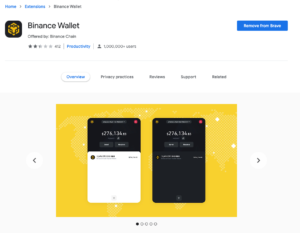I was fortunate to earn some big bucks since I first started investing in cryptocurrencies in 2016. However, as times change, so must be my investing philosophy, and here’s why.
You see, like everyone else, I was a naive person who thought cryptocurrencies could easily be accepted and adopted by people, who thought it will soon be a norm to transact in Bitcoin, buy houses through a smart contract, or even pay my bills with Litecoin, I was wrong, and so does everyone else.
“Bitcoin is a good investment because it’s like gold, but digital”
People often brag about how Bitcoin is a better gold, it’s easy to transfer, it’s divisible, and is permission-less. Although it’s true, this does not change the fact that both Bitcoin and gold are a non productive asset, an asset that produces no intrinsic value, and the only way the price is going up it’s when somebody else’s bought it higher than before (ok, they use gold in computer, but it’s a small segment in the demand).
There is no company/corporate behind it, there is no earning, no product, no dividend, people are not using it to transact with each other or to buy items or services tax-free ( which is why the government does not endorse crypto), and there is no economic value, people are buying it simply because someone else does.
Until Bitcoin could seamlessly integrate into our society and provide better ease of solutions to our existing infrastructure, I don’t see any reason to buy it without relying on faith.
“Screw fiat, government are printing it endlessly, Bitcoin is scarce because it’s supply is finite”
Bitcoin indeed has a finite supply, however, most people that I know do not just buy into Bitcoin, but also other forms of cryptocurrencies like Ethereum, Litecoin, Cardano, etc. These digital coins are “printed” and created out of thin air in the digital world.
So each time you buy a different type of coin, you bought another digital asset that were printed out of thin air. Sure you may argue that these different coins have it’s own ecosystem and use cases, but what useful use cases? All I see is most of them are about better, faster transactions, NFTs, Defi borrowing/lending, and defi staking. The last one is ironic because it encourages people to deposit money to print more money for the APY of hundreds or even thousands of percent, a pyramid scheme anyone?

“I prefer Bitcoin because I do not trust my government”
This is somewhat true if you are living in a country where there
are hyperinflation such as Venezuela or Turkey, you might be better off holding your assets in Bitcoin, but think to yourself, how many of us could relate in those situations? As I’ve said, most of us who bought Bitcoin hope that someone else would buy it back from us at a higher price in the future, there are no other viable use cases for us
Now of course it would be awesome if someone sends me Bitcoin while I’m abroad, I would get the funds quickly and no one could stop me, but investing hundreds or tens of thousands of dollars into an asset just so that I will be ready for that? Really?
“Bitcoin is an excellent store of value”
This is subjective to each individual, if you would have bought at one of the all-time highs in Dec 2017, Bitcoin isn’t an “excellent” store of value until 4 years later. The insane volatility in price swing made it a bad store of value and nothing short of a tool for a gambler to make a quick profit in a trustless decentralized manner.
I view a great store of value as something relatively stable in price, beating inflation most of the time each year. Examples would be housing properties, lands, or good company stocks.
“Well then just don’t buy it at all time high then”
If that is the case, any non-decaying or expiring asset would be an excellent store of value.
“Bitcoin is decentralized and no one can stop me”
This is true until the government decided to block or ban your frequently accessed Bitcoin exchange site, make up a law to forbid merchants and businesses to transact in cryptocurrencies, or scrutinize your crypto trades and business earning for tax evasion. Mainstream crypto adoption simply will not happen without the government’s endorsement.
“Bitcoin transactions are pseudo-anonymous, no one will know who am I”
Not really, if you use a centralized exchange, they know who you are. There are multiple tools and multiple methods to trace for an actor of a transaction, it is not impossible to do so.
https://bitquery.io/blog/trace-bitcoin-transaction-and-address#What_makes_Bitcoin_traceable
“El Salvador made Bitcoin one of their legal tender”
El Salvador’s national currency is US Dollar, yes, USD. and it’s a great example of why it’s hard to re-invest into your own country when you have no control over the currency. When U.S. Treasury printed trillions of dollars in 2020 to stimulate the U.S. economy, El Salvador did not receive a penny from the U.S. and yet had to deal with the risk of inflation in their economy.
While the country did manage to gain some profits by selling Bitcoin and building schools, what will happen if the Bitcoin price dropped? What if we have another bear market for 4–5 years? Find out what happened to Venezuela when the oil price dropped, and if Venezuela solely relies on a single asset that swings dramatically in price, it will collapse even further. Bitcoin must co-exist with its national currency to prevent this.
“Bitcoin uses way less energy and is far greener than the existing financial system”
There are cryptocurrencies that are far more energy-efficient than Bitcoin ( several million times, not exaggerating ) and provide far better decentralization, far cheaper fees, has smart contracts, and has a great reputation. But guess what, people don’t care about technology, they care about price and brand.
Conclusion
The blockchain technology behind Bitcoin truly is revolutionary, but in my opinion, it will not do well in terms of replacing the existing monetary system due to the simple fact that:
- The government will not endorse something that they cannot control.
- Cryptocurrencies need the government’s endorsement and approval for mass adoption ( like Alipay & Wechat pay in China ).
- There are far better and efficient systems out there than blockchain technology with the cost of not being a trustless system, and yet the world does not need one.
- &
- 2016
- 2020
- Adoption
- alipay
- All
- asset
- Assets
- Ban
- Bear Market
- Bills
- Bitcoin
- Bitcoin Price
- blockchain
- blockchain technology
- Building
- business
- businesses
- buy
- Buying
- Cardano
- care
- cases
- change
- China
- Coin
- Coins
- company
- contract
- contracts
- crypto
- Crypto adoption
- cryptocurrencies
- Currency
- deal
- Decentralization
- decentralized
- DeFi
- Demand
- DID
- digital
- Digital Asset
- Digital Coins
- Dollar
- dollars
- dropped
- DX
- Economic
- economy
- ecosystem
- energy
- ethereum
- exchange
- Fees
- Fiat
- financial
- First
- follow
- funds
- future
- Gambling
- Gold
- good
- Government
- great
- GV
- High
- houses
- housing
- How
- hr
- HTTPS
- Hundreds
- hyperinflation
- ia
- inflation
- Infrastructure
- investing
- investment
- IP
- IT
- Law
- Legal
- Litecoin
- Mainstream
- Market
- medium
- Merchants
- million
- money
- NFTs
- Oil
- Opinion
- Other
- Pay
- People
- philosophy
- price
- Product
- Profit
- Pyramid Scheme
- Risk
- Schools
- Services
- Short
- Simple
- small
- smart
- smart contract
- Smart Contracts
- So
- Society
- Solutions
- Staking
- started
- Stocks
- store
- supply
- system
- Systems
- tax
- Technology
- the world
- time
- trades
- transaction
- Transactions
- trillions
- Trust
- Turkey
- u.s.
- U.S. economy
- us
- US Dollar
- USD
- value
- Venezuela
- View
- Volatility
- W
- WHO
- world
- year
- years













